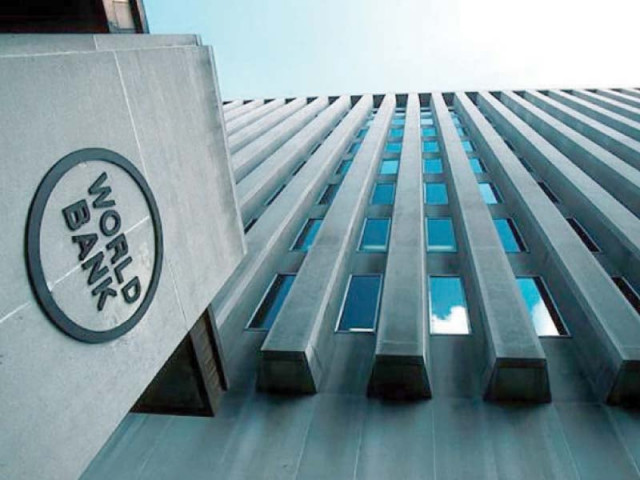Pakistan takes another $1.3b loan from World Bank
Country’s almost dry financing lines start opening after approval of $500m tranche by IMF

Pakistan and the World Bank on Friday signed over $1.3 billion worth of loan agreements including $600 million for budget support, oiling the government’s drying external financing pipelines after revival of the bailout package.
The amount includes $200 million lending for fighting locust attack – a project that faces resistance from the planning ministry due to fear of wastage of money on procurement of over 300 luxury vehicles and laptops. Pakistan also finally agreed to take $50 million loan for refugees after it initially refused to borrow the money for the purpose.
As many as seven loan agreements were signed by Noor Ahmed and Najy Benhassine, the country director of WB, along with representatives of the provincial governments. Minister for Economic Affairs Makhdoom Khusro Bakhtiar witnessed the signing ceremony.
Pakistan’s almost dry financing lines have started opening after the approval of the $500 million loan tranche by the IMF this week.
The government is also going to borrow around $2 billion from the international markets next week by floating the US dollar denominated Eurobonds.
Pakistan’s total public debt is close to 90% of the size of the economy, which is far higher than the statutory limit set by parliament and also above the sustainable level.
The $1.34 billion financing will support the government’s initiatives in social protection, disaster and climate risk management, improving infrastructure for resilience, agriculture and food security, human capital development and governance, the Ministry of Economic Affairs said.
Bakhtiar described the country’s growing indebtedness as a symbol of “confidence of international financial institution and development partners on the progress and reforms being taken by the incumbent government”.
Both the sides signed a $600 million loan agreement for disbursement of money among the Benazir Income Support Programme beneficiaries. The programme will support the development of more adaptive social protection system that will contribute to future crisis-resilience among poor and vulnerable households in the country, the ministry said.
The $600 million loan has been taken for Ehaas Conditional Cash Transfer (CCT) programmes, namely Kafaalat, Waseela-e-Taleem, and Nashonuma. The financial inclusion and informal worker support initiatives of Ehsaas have also been included in the programme.
The World Bank’s Board of Executive Directors had approved $600 million loan on Thursday.
“Amid the Covid-19 pandemic, millions of families across Pakistan face economic hardship, particularly those working in the informal sector, who have no savings or are not covered by existing social safety net programs,” Benhassine said.
The Crisis-Resilient Social Protection Programme (CRISP) will facilitate the gradual expansion of Ehsaas social protection programmes to better reach informal workers through an innovative, hybrid approach that blends social assistance with promotion of increased savings that informal workers, particularly women, can depend on in the event of economic shocks. It will provide a platform through which the government can rapidly respond to support the most affected households during an economic crisis.
In the event of a crisis, a more flexible and dynamic social protection system can significantly reduce the time needed to respond to peoples’ needs as well as supporting a faster recovery, Amjad Zafar Khan, Task Team Leader for CRISP said.
Pakistan and the World Bank also signed the Locust Emergency and Food Security Project worth $200 million. Pakistan will take a $200 million loan from the World Bank to fight locusts but more than half of the amount will be consumed on things that do not directly relate to fighting the insects.
The loan money will be used to purchase of 310 double-cabin vehicles, 200 laptops and creating about 322 positions rather than helping the farmers. These vehicles are considered as luxury vehicles with high cost of Rs7.5 million per unit.
The Planning Commission had opposed the locust project on the ground that after the 18th Constitutional Amendment, the subject had been devolved to the provinces.
Pakistan and the World Bank also signed $200 million loan agreement for Khyber-Pakhtunkhwa Human Capital Investment Project. The objective of the project is to improve availability, utilisation and quality of primary healthcare services and elementary education services in four districts of K-P that have been hosting refugees ie Peshawar, Nowshera, Haripur and Swabi.
Another loan of $200 million has been taken for Sindh Resilience Project.
For Balochistan Livelihood and Entrepreneurship and Balochistan Human Capital Investment Project, the $86 million deal has been signed. These projects aim to promote employment opportunities for rural communities; achieve sustainability of enterprises and improve utilisation of quality health and education services in various districts of Balochistan.
For supporting institutional interventions for management of refugees, Pakistan and the World Bank signed $50 million loan agreement. The loan had been pitched by the World Bank, which Pakistan reluctantly accepted.



















COMMENTS
Comments are moderated and generally will be posted if they are on-topic and not abusive.
For more information, please see our Comments FAQ